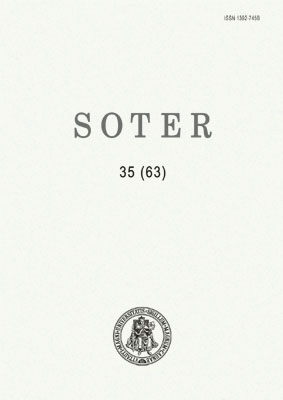Politika ir religija: povestfalinės antireliginės kampanijos priežastys ir pasekmės
Politics and Religion: the Causes and Consequences of the Post-Westphalian Anti-Religious Campaign
Author(s): Algirdas KazlauskasSubject(s): Christian Theology and Religion
Published by: Vytauto Didžiojo Universitetas
Keywords: liberalizmas; pozityvizmas; religija; Trisdešimtmetis karas; Vestfalijos taika; liberalism; positivism; religijon; Thirty Years War; peace of Westphalia
Summary/Abstract: Šiandienos Vakarų pasaulyje politika yra laikoma nesuderinama su religija. Šis stereotipas kilo dar XVII amžiaus viduryje, kada Vestfalijos taikos sutartimi baigtas Trisdešimtmetis karas. Dokumento tekste užfiksuotas principas, įteisinantis valstybės valdovo nepriklausomybę nuo Katalikų Bažnyčios įtakos. Religija buvo išstumta iš viešojo gyvenimo. Manyta, jog jos trūkumą žmogaus gyvenime pakeis moksliškumas ir racionalumas. Tačiau mokslui nepaaiškinus asmens egzistencijos slėpinio ėmė plisti pseudoreliginiai kultai, aukštinantys žmogaus protą bei mokslą. Vis dėlto pozityvistai nesugeba savo tikėjimo įrodyti moksliškai. Galios balansui pasaulyje keičiantis Vakarų nenaudai, ėmė kilti nesekuliarios jėgos, kurios nevengia į politiką painioti religiją. Tačiau pozityvizmo dvasios apakinti vakariečiai nenori pripažinti kintančios tikrovės. Pozityvistai, nesugebėję sukurti alternatyvos religijai pakeisti ir jausdami savojo „tikėjimo“ silpnumą, iki šiol vengia pradėti visavertes diskusijas su religija. In today’s Western world politics is thought to be incompatible with religion. The origin of this stereotipe derives from the mid-seventeenth century, when the Thirty Years’ war was ended by the Peace Treaty of Westphalia. In the text of the document the principle legitimizing the state independence from the influence of thenCatholic Church was recorded. Religion was forced out of the public life. It was thought that its absence in human life will be replaced by scientific rationality. But as the science proved unable to explain the mystery of human existence, the cult of pseudo religion, extolling human mind and science, began to disseminate. However, positivists failed to provide scientific proofs for their “faith”. As the global balance of power changes to the West’s disadvantage, the non-secular powers which do not shirk mixing politics and religion are on the rise. However, dazed by the spirit of positivism people of the West are reluctant to recognize the changing reality and avoid dialogue with the renascent religion. Positivists, who were unable to develop alternatives for religion, and feeling the feebleness of their pseudo-religious confession, avoid getting involved in a full-scale discussion with a religion.
Journal: SOTER: religijos mokslo žurnalas
- Issue Year: 63/2010
- Issue No: 35
- Page Range: 85-98
- Page Count: 14
- Language: Lithuanian

